Previously, on the evening of September 11, the Vietnam Cyberspace Emergency Response Center (VNCERT), the National Cyber Security Center under the Department of Cyber Security and High-Tech Crime Prevention and Control (A05) of the Ministry of Public Security issued a press release regarding the leak of personal data at the Vietnam National Credit Information Center (CIC).
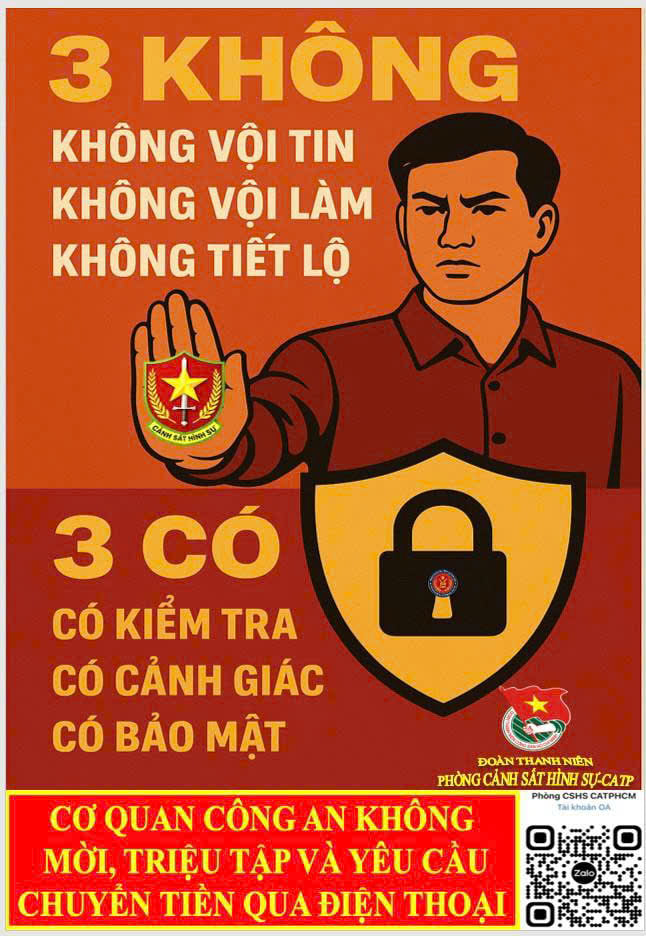
At the same time, deploy professional and technical measures to respond to incidents, strengthen network security solutions, collect data and evidence for handling according to the provisions of law. Initial verification results show signs of cybercrime attacks and intrusions to steal personal data. The amount of illegally appropriated data is being continuously counted and clarified.
VNCERT requests that organizations and individuals do not arbitrarily download, share, exploit, or use the above data. In case of intentional violations, they will be handled according to the provisions of the law. At the same time, it recommends that people raise their vigilance against cybercrime activities, and avoid being exploited by the above information to carry out acts of spreading malware, fraud, and property appropriation.
What to do when the National Credit Information Center is hacked?
Predicting 5 tricks criminals will exploit after having data
According to the Criminal Police Department, analysis and prediction to make appropriate recommendations for students, workers, civil servants, and the elderly who are less familiar with technology. Predicting the tricks that will be exploited after having personal data (ID card, phone number, bank account, credit history...), fraud groups will deploy new or modified tricks:
1. Impersonating banks, CIC, or government agencies to call for verification: Scammers will call, text, or email, reading your full name, ID card number, and bank account number to create absolute trust. They will announce sensational information such as: "Your account is at risk of credit", "You have bad debt that needs to be handled urgently", or "Need to re-verify information to avoid account lockout". The ultimate goal is to lure the victim into clicking on a fake link or providing an OTP code to steal money.
2. Loan fraud, loan maturity, credit limit increase: Students and workers in financial need are often targeted with attractive advertisements such as "quick loan without collateral", "support for clearing bad CIC debt". After the victim contacts, the criminal will make an excuse: "Your credit information is being recorded as bad debt, you need to pay a fee for us to delete the information from the system". In fact, this is a trick to appropriate this "fee" or collect other sensitive data.
3. Impersonating relatives, colleagues, and leaders to ask for money transfers: With the personal data obtained, criminals can easily create a scenario of impersonating relatives, bosses, or colleagues who urgently need money. In particular, older people with little exposure to technology will easily trust because scammers can provide very accurate personal information.
4. Calling to threaten the law: The scammer calls and announces loudly: "You are involved in a money laundering case, your bank account will be frozen for investigation". They will ask the victim to provide a password, OTP code or transfer money to a "safe account" of the authorities for verification, in fact to appropriate money.
5. Mass dissemination of malicious messages and emails: When having a large amount of data, criminals can carry out a large-scale SMS, Zalo, and Email spam campaign. The messages often impersonate banks with the content: "CIC requires re-authentication of your account information. Please access the following link...". This link will lead to a fake website or contain malicious code that can steal login information and passwords.
PC02 analyzed that criminals often target the weaknesses of each group of subjects, which are students: Easily attracted by invitations to borrow money to pay tuition fees, online part-time jobs with immediate salary, or services to increase credit card limits.
Workers and civil servants are also targeted: They are often the target of bad debt notices and fake credit risk warnings. In addition, they can be tricked by fake work emails containing malicious links. The elderly are also the most vulnerable group to calls impersonating police, court or bank employees due to fear and lack of skills to check and verify information.
To avoid becoming a victim, PC02 recommends that people need to master the following safety principles: People need to regularly update announcements and warnings from the police, banks and mainstream media to protect the safety of themselves and their families.
What to do when the National Credit Information Center is hacked?
'6 golden rules' for self-protection
1. Absolutely do not provide: Banks, the National Credit Information Center of Vietnam (CIC), and police agencies never ask people to provide passwords, OTP codes, or other confidential information via phone, text messages, or links.
2. Do not click on strange links: Absolutely do not click on links sent via SMS, Zalo, Email from unknown sources.
3. Always access banking services through the bank's official app or official website.
4. Always verify information: When receiving any call claiming to be from a competent authority or bank to notify of debt, request to freeze the account... calmly hang up. Then, proactively call the bank's official hotline number or go directly to the nearest branch to verify the information.
5. Do not transfer money for "verification": Absolutely do not transfer money to any strange account as requested by the caller for the purpose of "verification" or "guarantee". Be careful with advertisements: Students and workers need to be especially vigilant and not believe in advertisements for "clearing bad CIC debt" and "hot loans with 0% interest rate" on social networks.
6. Support the elderly: Family members need to talk regularly, instruct grandparents and parents on how to recognize and reject fraudulent calls, and remind them to only contact the bank through official channels when needed.
Source: https://ttbc-hcm.gov.vn/cong-an-tp-hcm-du-bao-5-kich-ban-lua-dao-sau-vu-lo-du-lieu-ca-nhan-1019552.html




![[Photo] Launching Ceremony of the Specialized Electronic Information Page of the Communist Party of Vietnam - 14th Congress](https://vphoto.vietnam.vn/thumb/1200x675/vietnam/resource/IMAGE/2025/9/12/4c1b894be2ea4e3daccfd8c038b6fb46)
![[Photo] General Secretary To Lam attends the 80th Anniversary of the People's Court's Traditional Day](https://vphoto.vietnam.vn/thumb/1200x675/vietnam/resource/IMAGE/2025/9/13/ff42d08a51cc4673bba7c56f6a576384)

![[Photo] Thac Ba Lake: Towards an international-class tourism, resort and cultural center by 2040](https://vphoto.vietnam.vn/thumb/1200x675/vietnam/resource/IMAGE/2025/9/13/0b11d0413f6543bca27a358281f62e5e)




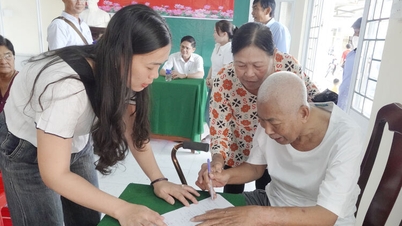

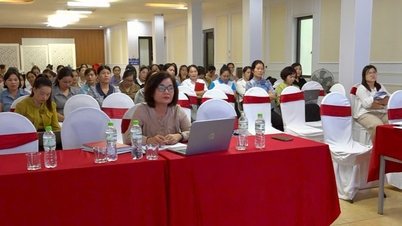













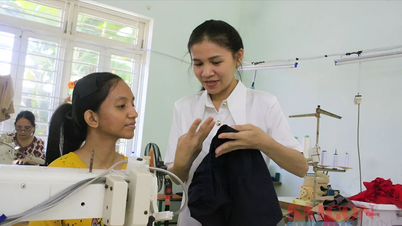

















































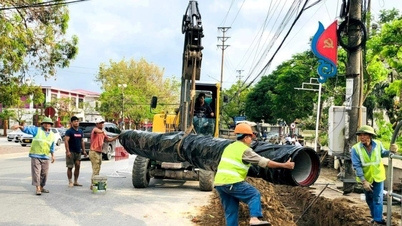


















Comment (0)